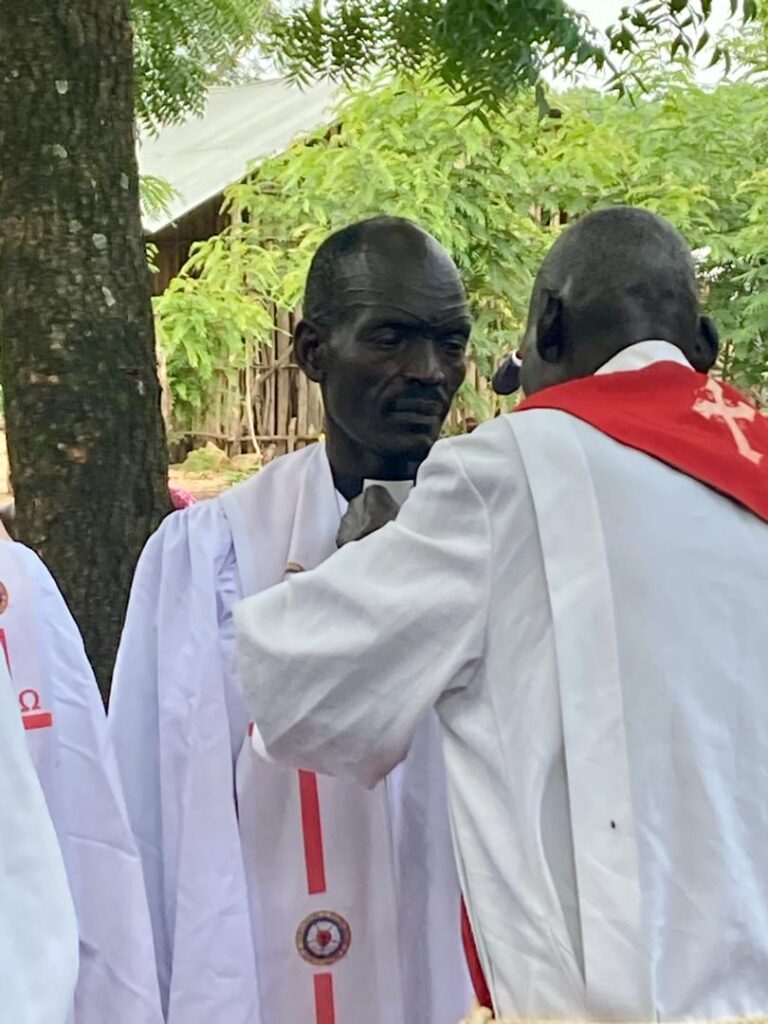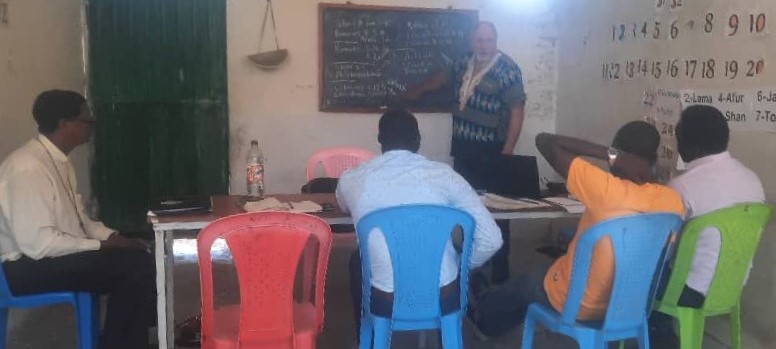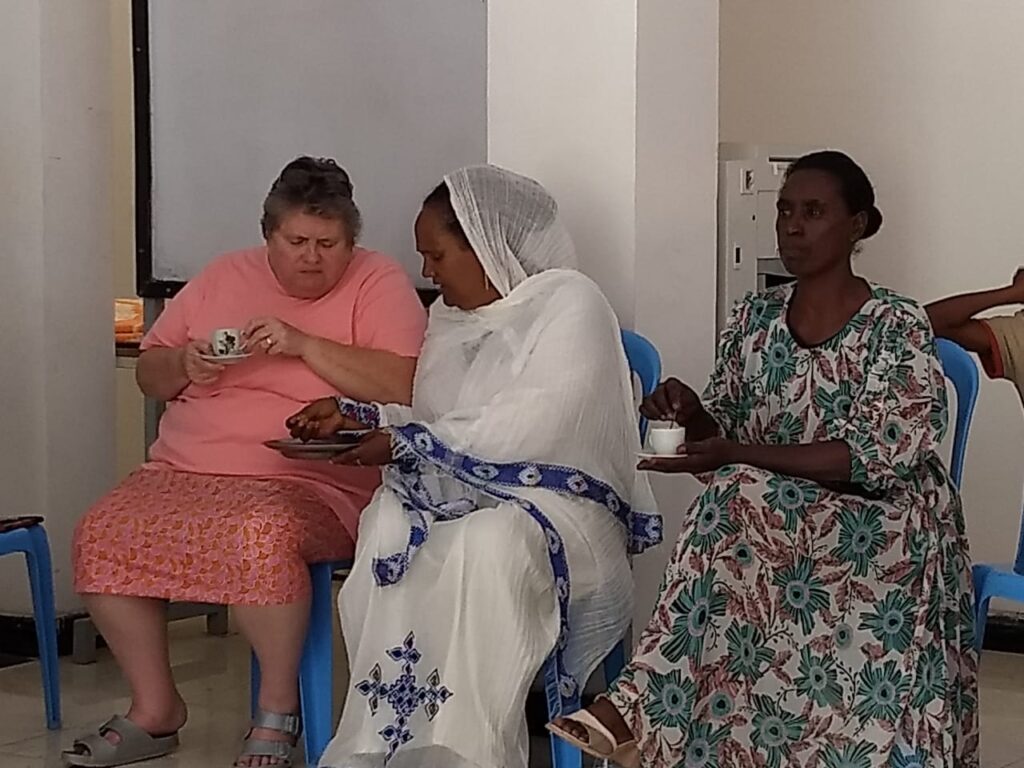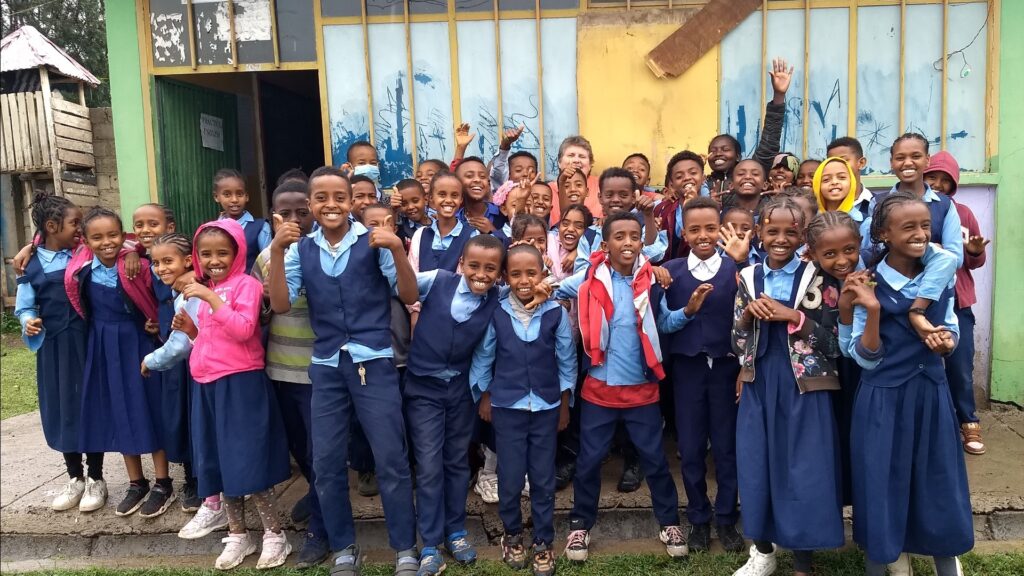Finding the True Cross
Meskel, or ‘cross” is the name of a holiday that the Ethiopian Orthodox Church celebrates. The full name of the festival is “The Finding of the True Cross.” According to their tradition, God spoke in a dream to a woman named Helena, who was the mother of Constantine, the first Christian Emperor of Rome. In the dream, God instructed Helena to light a fir tree on fire. The smoke from the burning tree miraculously led Helena and her friends to a certain place on the ground. When people dug into the ground at that place, they found the true cross on which Jesus died.
It’s just a legend, not a true teaching of the Bible. But many people in Ethiopia celebrate this festival. When the day comes, thousands of men, women, and children stream out into the streets and public squares, dressed in colorfully embroidered white robes. They build a huge teepee-shaped bonfire that is intended to look like a fir tree. Everyone joins the celebration. Many of them are not members of the Ethiopian Orthodox Church, and many of them are not even Christian at all. Many of them do not understand the true meaning of Jesus and his cross. They just want to have a party.
New Contacts from Sudan and Ethiopia
When WELS missionaries Dan Kroll, Howard Mohlke and I visited Ethiopia a few weeks ago, the Meskel celebration was underway. We had several exciting reasons to make that trip to Ethiopia. First, we wanted to meet with leaders of the Lutheran Church of Sudan (LCS). The LCS is an Arabic-speaking Sudanese group that claims to have 16,000 Lutheran members. Over the past year, we have been communicating with this group via the internet. We have shared some Arabic printed materials so they can study the Scriptures in their own language. But we have never been able to meet them in person. Sadly, our plan to meet them in Ethiopia was not successful. The leaders of the LCS were not able to get the proper passports and visas.

Thankfully, other goals were more successful. My colleague, Dan Kroll, focused on meeting with a group called the Gambella Evangelical Lutheran Church, or GELC. (Gambella is a region in western Ethiopia). The members of this group number about 150 and most of them belong to the Anuak tribe. Together with Missionary Kroll, about 35 leaders of this group were blessed to study what the Bible says about the Church and its ministry.
South Sudanese Refugee Work
Meanwhile, Howard Mohlke and I were more focused on another group, the Confessional Evangelical Lutheran Church of Ethiopia and South Sudan (CELCESS). This group – also located in the Gambella region of Ethiopia – claims to have 28 congregations and about 14,000 members. Many of the members belong to a tribe of people called Nuer.

Especially, we met with a man named Lam Nhial Luak. Lam himself has been very well trained in Lutheran teachings. He holds a Bachelor of Divinity degree given by our sister synod, the Lutheran Church of Ethiopia. WELS missionaries also participated in Lam’s training. Every month, the WELS provides funding for Lam to teach a three-day workshop on Christian doctrine to 15 Nuer pastors. The pastors take what they have learned from the Bible and share it with their members. During our visit, we attended one of Lam’s workshops. On the following Sunday, we were privileged to observe Lam’s official installation into his teaching role, and the ordination of four new pastors.

To be clear, the WELS is not yet in fellowship with any of these groups – neither the LCS nor the GELC nor the CELCESS. I do not know what will happen with these groups in the future if God will bring them to a full understanding of the Scriptures and into fellowship with the WELS. But I do know this: These people love their savior Jesus Christ. They are eager and excited to receive instruction from God’s word. They know that God has saved us, not because of any good thing that we have done, but by the perfect life and innocent death of Jesus Christ, our Lord. Through their study of the Scriptures, they have found the true cross, and that is a reason for us to celebrate.
Missionary Mark Panning lives in Malawi
Please pray for those working in fields that are ripe for harvest. Share their story, engage with future news, and receive updates. Learn more about our mission fields in Africa and how the Holy Spirit is working faith in people’s hearts at https://wels.net/serving-others/missions/africa


